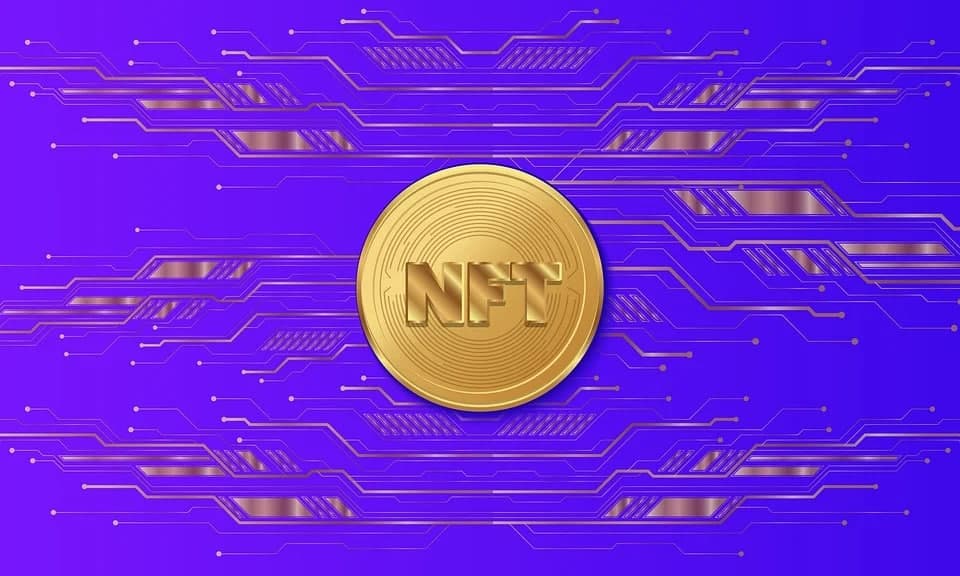
Unless you've been hiding under a digital rock, you've likely heard of Non-Fungible Tokens (NFTs).
These digital tokens on the blockchain have skyrocketed in popularity in recent years, with projects such as CryptoKitties, Phantabear, and Bored Ape Yacht Club drawing interest from average collectors and billionaires alike.
Even brands are seeing the value of investing in NFT collaborations, with the likes of Visa and Louis Vuitton teaming up with NFT projects to cash in on digital scarcity.
Yet, NFTs are still struggling from a bit of an identity crisis.
Are they simply fun digital collectibles? Are they a medium for artistic expression?
Or do NFTs hold practical applications beyond the world of art and media?
Let's take a closer look at what NFTs are all about and how we can harness the power of blockchain technology to use them in our everyday life.
What is an NFT?
Non-Fungible Tokens, otherwise known as NFTs, are simply unique tokens on the blockchain. Being non-fungible means that each token is unlike another, and thus, one token cannot be exchanged for another.
Most cryptocurrencies on the blockchain right now are fungible tokens (FTs). Trading a single Bitcoin, for example, is the same as trading any other Bitcoin.
The blockchain ensures that each transaction has the proper value attributed to it, and there is no need for one coin to be differentiated from another.
This quality makes fungible tokens great for currencies - they are easy to trade, have no difference in value, and are secure thanks to cryptography.
NFTs create digital scarcity, which gives them the ability to act like currencies and collectibles. This opens up tons of opportunities for use cases that depend on unique data sets and scarcity. You can use NFT analytic tools and annual reports to study the rarity of NFTs and decide which ones might be a valuable investment.
Practical Applications of NFTs
NFTs have burst into the public consciousness in the form of art and media.
Popular projects such as CryptoKitties, CryptoPunks, and Bored Ape Yacht Club have created a huge interest in NFTs, which have been used to create digital trading cards, 3D art pieces, and even playable music.
But the popularity of NFTs has not been limited to just fun projects that catch the eyes and wallets of the public.
NFTs, like all blockchain technology, can be used for a variety of practical applications, from verifying the authenticity of documents, to preventing ticket scalping, and even acting as smart contract tokens.
While NFTs have been popularized for their fun applications, here are some ways that they can help us in our everyday lives.
1. Enhanced Security with Smart Contracts
NFTs can be used to tokenize traditional assets, such as certificates and diplomas.
This keeps the document secure on the blockchain while still being uniquely identifiable by outside institutions or employers.
Once an NFT is created for the diploma, it remains unattainable to anyone but its owner while also being verifiable by third parties with full transparency.
2. Ticket Sales
NFTs can also be used to ensure accurate ticket sales and access to events - reducing the risk of counterfeiting. NFT tickets would work similarly to paper tickets but could also contain tags that allow you access. This way, you don't need a physical copy of the ticket to verify its authenticity - it is already stored securely on the blockchain! One example of this is the news that Coachella recently announced about releasing an NFT that includes lifelong tickets.
3. Documentation Authentication
NFTs could be used to provide document authentication, allowing governments, businesses, and individuals alike to verify the authenticity of important documents.
A prime example is NFT-based vaccine passports or records, which let you verify your personal medical history immediately - no paper required.
4. Shipping and Commerce
Imagine a world where data for shipping and logistics was managed on the blockchain.
With NFTs, companies can issue and manage smart contracts for cargo and delivery services while also ensuring complete transparency and traceability using crypto-tracking.
The Future of NFTs
NFT technology isn't limited to just arts and media - though these projects have certainly brought many new people into the world of blockchain.
NFTs are a brand new form of digital asset management and can be used in a variety of ways to enhance our lives, from security to commerce.
From digital art to physical objects, you can be sure that NFTs will continue to grow as a technology. Their practical applications go far beyond just fun and games - the world is full of potential, and NFTs are bringing it one step closer.
* This is a contributed article and this content does not necessarily represent the views of techtimes.com








